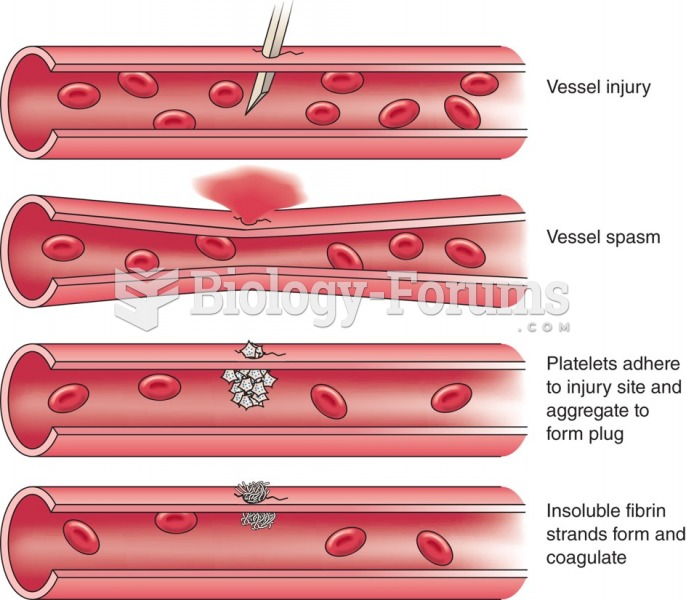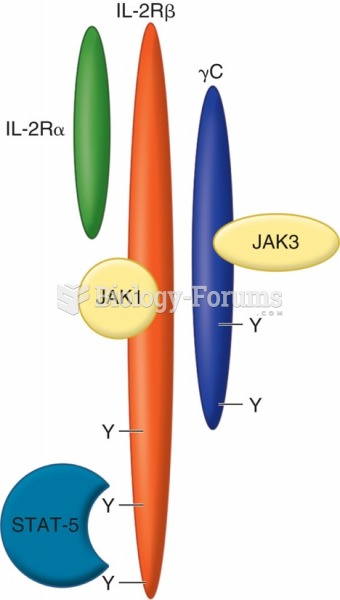|
|
|
Excessive alcohol use costs the country approximately $235 billion every year.
Medication errors are more common among seriously ill patients than with those with minor conditions.
Patients who have undergone chemotherapy for the treatment of cancer often complain of a lack of mental focus; memory loss; and a general diminution in abilities such as multitasking, attention span, and general mental agility.
Pubic lice (crabs) are usually spread through sexual contact. You cannot catch them by using a public toilet.
When Gabriel Fahrenheit invented the first mercury thermometer, he called "zero degrees" the lowest temperature he was able to attain with a mixture of ice and salt. For the upper point of his scale, he used 96°, which he measured as normal human body temperature (we know it to be 98.6° today because of more accurate thermometers).







